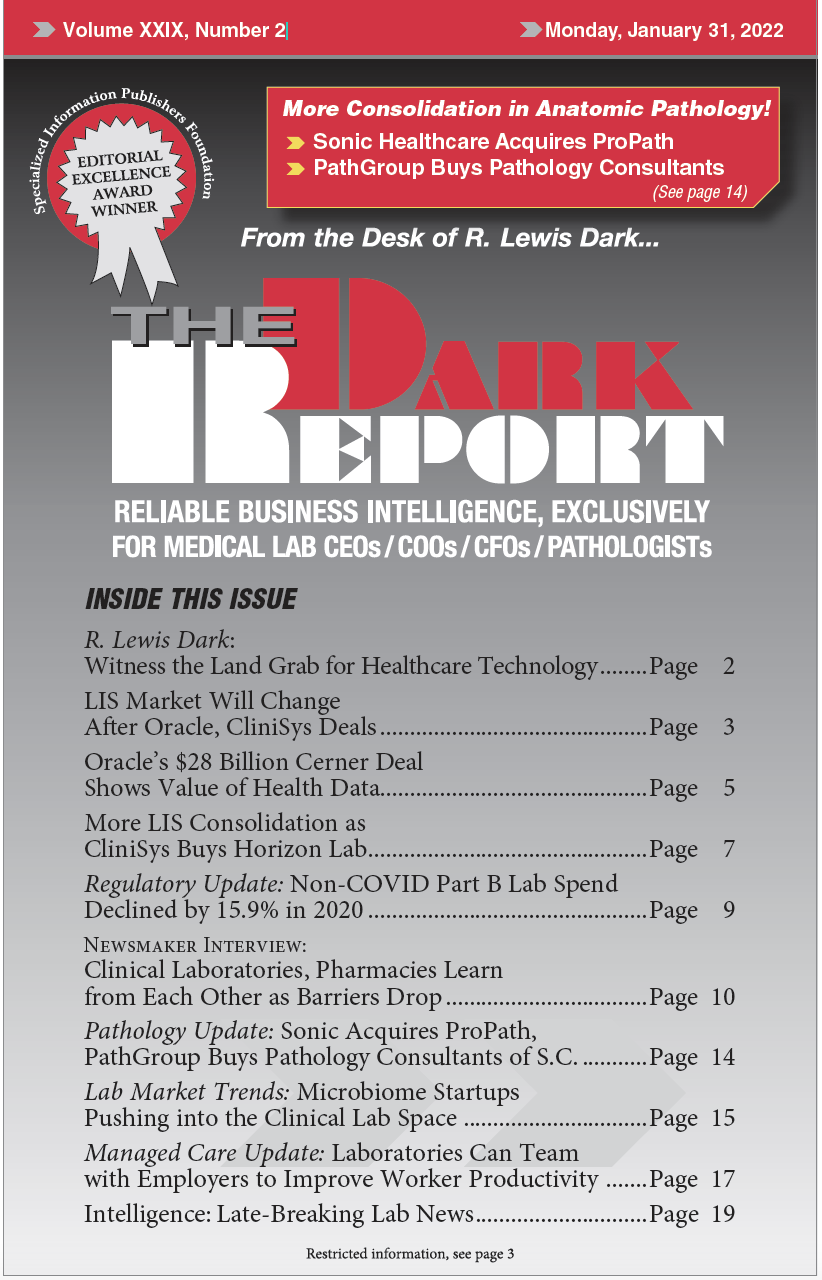HEALTHCARE’S ONGOING TRANSFORMATION AND THE EMPHASIS ON VALUE-BASED REIMBURSEMENT are creating a new opportunity for savvy clinical laboratory executives and pathologists. This opportunity is centered around the need of self-insured employers to address the problem of employee presenteeism. “Helping employers with presenteeism can create a value stream for clinical laboratories,” says Kristine Bordenave, MD, FACP, …
Labs Can Team with Employers to Improve Worker Productivity Read More »
To access this post, you must purchase The Dark Report.


